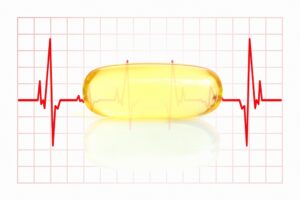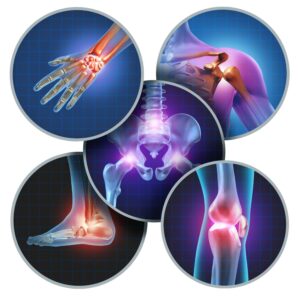What Is Omega 3?
Omega 3 is an unsaturated fatty acid that improves the health of cells, which are the building blocks of all tissues. In addition, Omega 3 has anti-inflammatory and anti-scorbutic properties, which can be helpful for people with arthritis and heart disease. Omega 3 also promotes brain development in children and helps maintain vision in older adults. The prominent elements in Omega 3 are the essential fatty acids, DHA and EPA.

What is DHA?
DHA is also known as docosahexaenoic acid. It is a critical fatty acid that helps maintain the functioning of many-body structures, including the eyes and brain. DHA is present in a variety of foods and supplements. DHA is used to produce cell membranes essential for tissue growth and repair. It also helps regulate the immune system, metabolism, and hormones. DHA also helps prevent cell damage caused by free radicals and is vital for brain development in babies.
What is EPA?
EPA (eicosapentaenoic acid) helps maintain healthy cell structure and function and enhances the immune system. As a result, it can help prevent high blood pressure, heart disease, and many other conditions.
EPA and DHA are both essential to good health. They are crucial for pregnant women, infants, growing children, and older adults.
How much EPA & DHA do we need daily?
The amounts of EPA and DHA in foods suggest we should get about 2 to 5 grams daily for children, 2 to 5 grams daily for teens, 1.6 to 4 grams daily for older adults, and 1.6 to 4 grams daily for pregnant women (DRI). Women who are nursing (or planning on nursing) may need more. In addition, certain conditions will benefit from higher doses.
What to look for in Omega 3 supplements?

A good Omega 3 supplement will have high levels of DHA and EPA. Purified forms of each are also available from the top manufacturers (up to 80%).
Omega 3 triglyceride form is the most common form found in high-quality supplements. It is a combination of free DHA and free EPA. Inexpensive brands will NOT be in the triglyceride form (check the label). Omega 3 triglyceride form is also the most studied for benefits to human health and is also absorbed better than any other form.
A top-quality concentrated Omega 3 supplement in triglyceride form can deliver over 2 grams of Omega 3 fish oil per serving (2 capsules) consisting of 875 mg of DHA and 1125 mg of EPA.
10 Benefits of Omega 3 Fish Oil
1. Cardiovascular Health

Omega 3 fatty acids can reduce the risk of cardiovascular disease by lowering blood pressure and decreasing triglyceride levels in the blood. They also help decrease platelet aggregation, which is the process that causes blood clots to form. Decreasing platelet aggregation reduces the risk of heart attacks and strokes.
2. Cognitive Function (Brain)

Research has found that a high level of omega 3 fatty acids in breast milk helps brain development in babies.
Omega 3 also promotes brain development and function in older adults. A high concentration of Omega 3 fatty acids may help prevent Alzheimer’s disease by slowing down the formation of protein deposits in the brain associated with Alzheimer’s. Omega 3s also reduce depression, symptoms of ADHD, and other cognitive disorders due to their ability to improve the function of the nervous system.
3. Vision
Omega 3 fatty acids have improved vision in older people by increasing circulation around the eyes and improving eye health.
4. Skin health

Omega 3 fatty acids can strengthen hair, skin, and nails and reduce the chance of dry skin. They also help maintain healthy cells and help the body use oxygen more efficiently. Decreasing oxidative damage to cell membranes may prevent certain cancers such as adenocarcinoma of the pancreas.
Omega 3 creams for the skin have relieved inflammation and improved skin health.
5. Omega 3 Anti-aging
Omega 3 benefits the body by reducing inflammation and supporting cell growth. Omega 3 can help decrease the appearance of wrinkles and fine lines, prevent symptoms of dry skin, and improve redness and other skin irritations.
6. Heart Health
Omega 3 fats have been shown to protect against heart disease by reducing the risk of developing blood clots.
7. Joint Health

Omega 3 fatty acids have anti-inflammatory properties that help protect joints and reduce inflammation due to injury or arthritis. Omega 3 joint health supplements may benefit patients with osteoarthritis and rheumatoid arthritis by reducing joint pain and stiffness.
8. Diabetes
Omega 3 has a positive effect on blood sugar levels and can reduce the risk of developing diabetes. Omega 3s also help control insulin levels and alleviate symptoms of Type 2 diabetes, such as fatigue and hunger.
9. Child Development
Omega 3s are essential for brain development in infants, children, and pregnant women. They also reduce symptoms associated with pregnancy, such as morning sickness (nausea).
10. Blood Clotting
The application of Omega 3 fatty acids could help prevent blood clots due to their ability to reduce platelet aggregation, which is the process that causes blood clots.
Want to learn more? I have included links to articles from prominent sources for your review.
If you find a good article or want to contribute to this topic, please post your comments here.
Omega 3 scientific articles:
Harvard Medical School
Mayo Clinic
https://www.mayoclinic.org/drugs-supplements-fish-oil/art-20364810
National Institute of Health (NIH)
https://ods.od.nih.gov/factsheets/Omega3FattyAcids-Consumer/
American Heart Association
https://www.heart.org/en/healthy-living/healthy-eating/eat-smart/fats/fish-and-omega-3-fatty-acids




